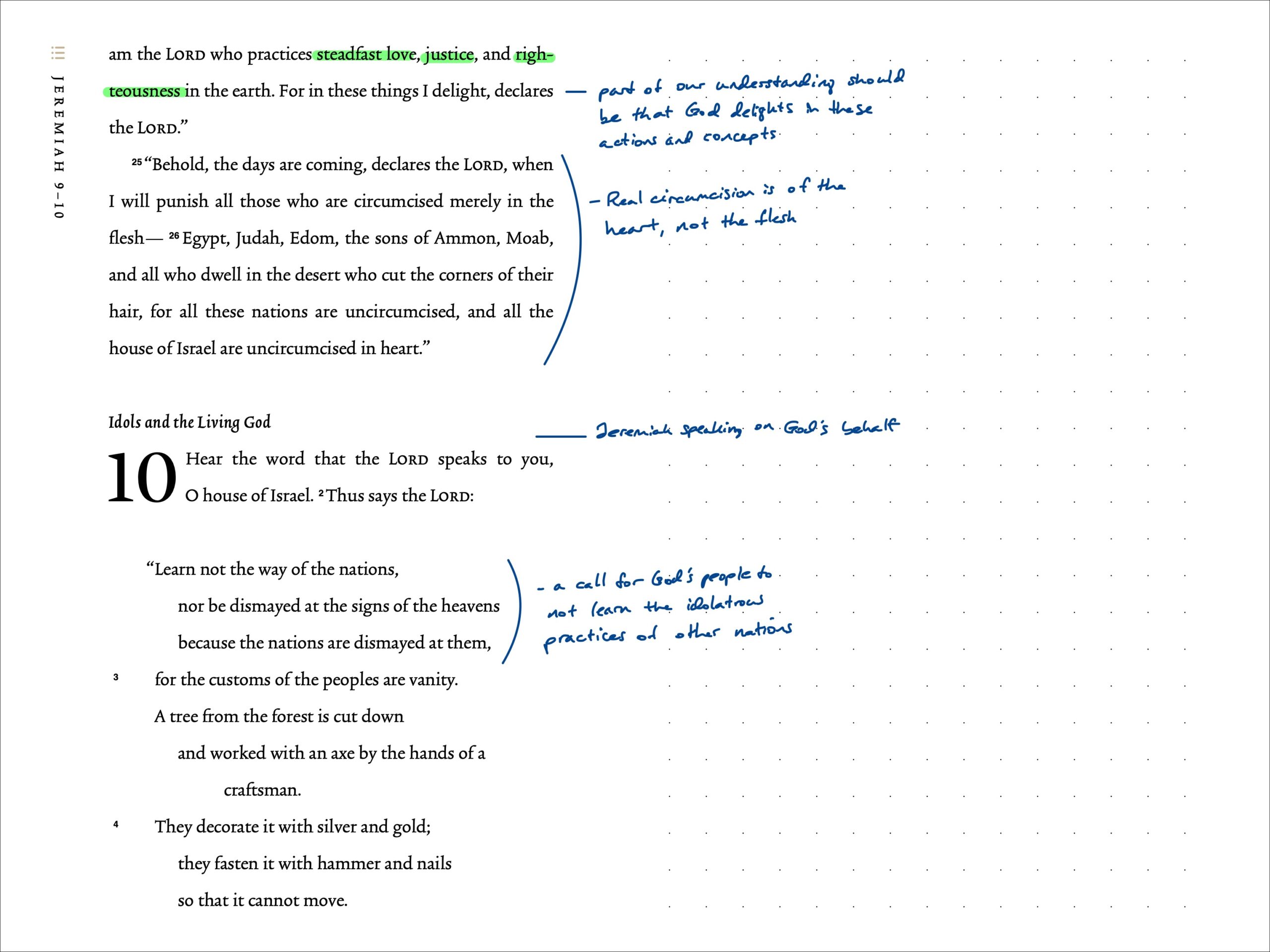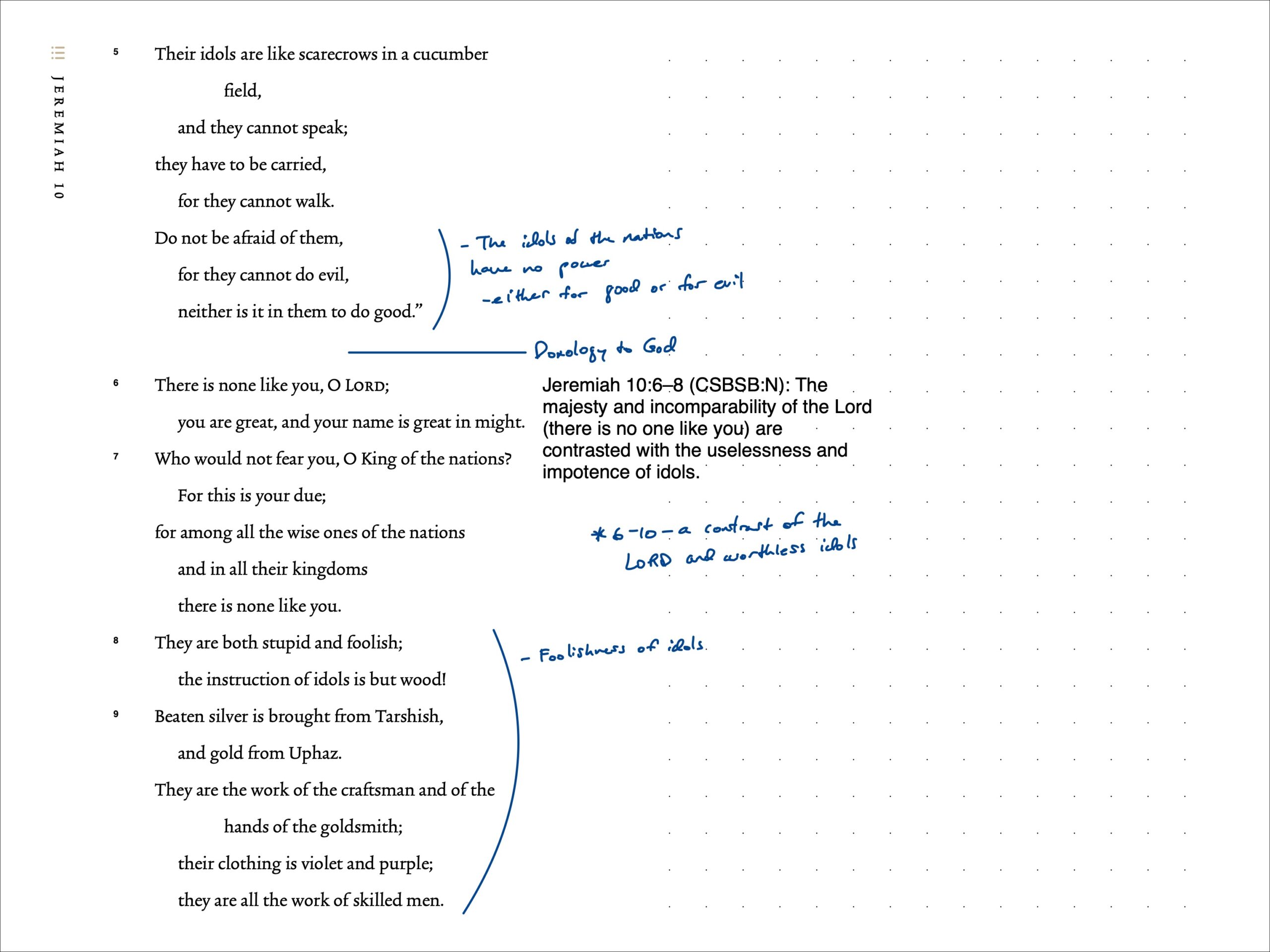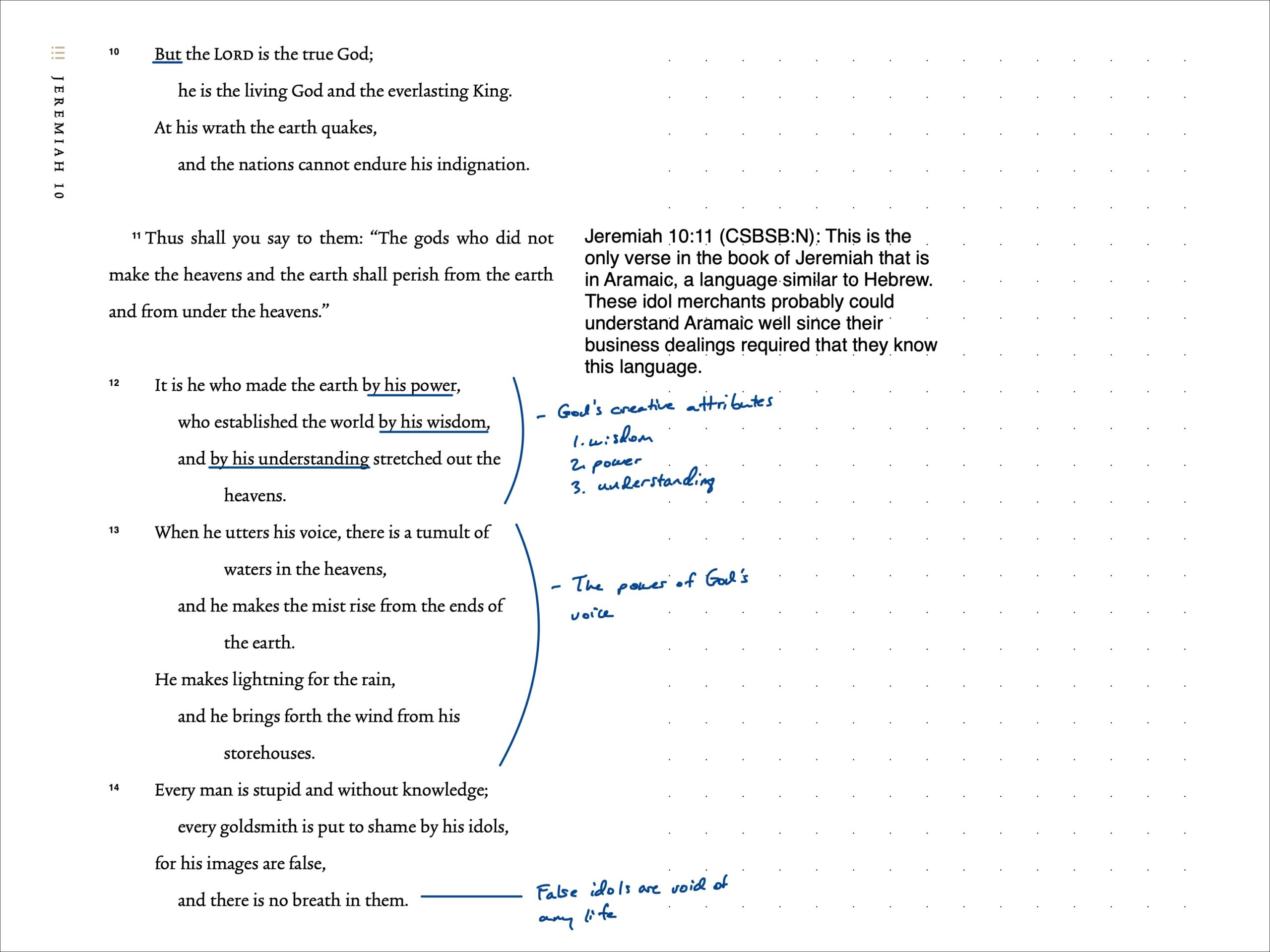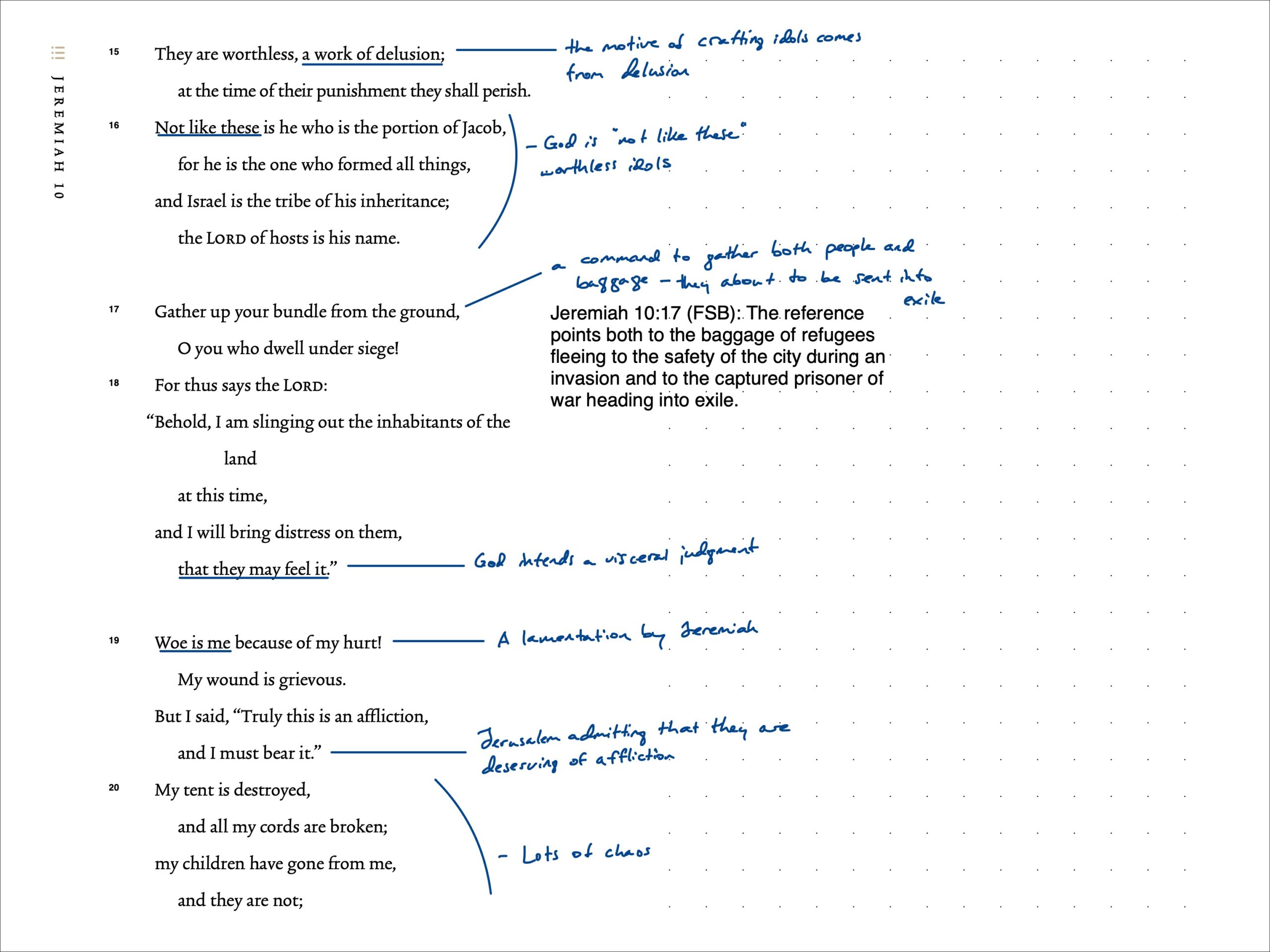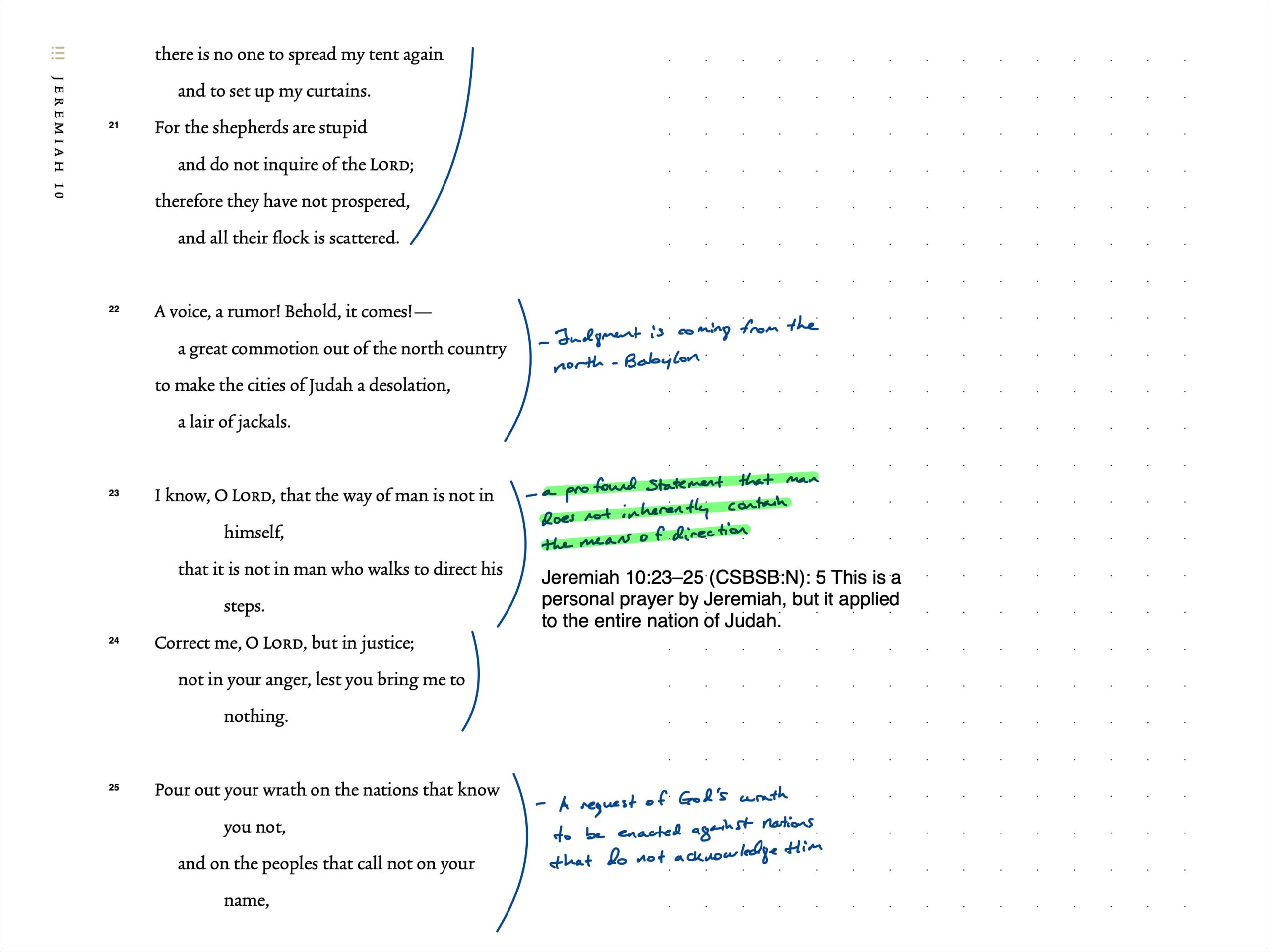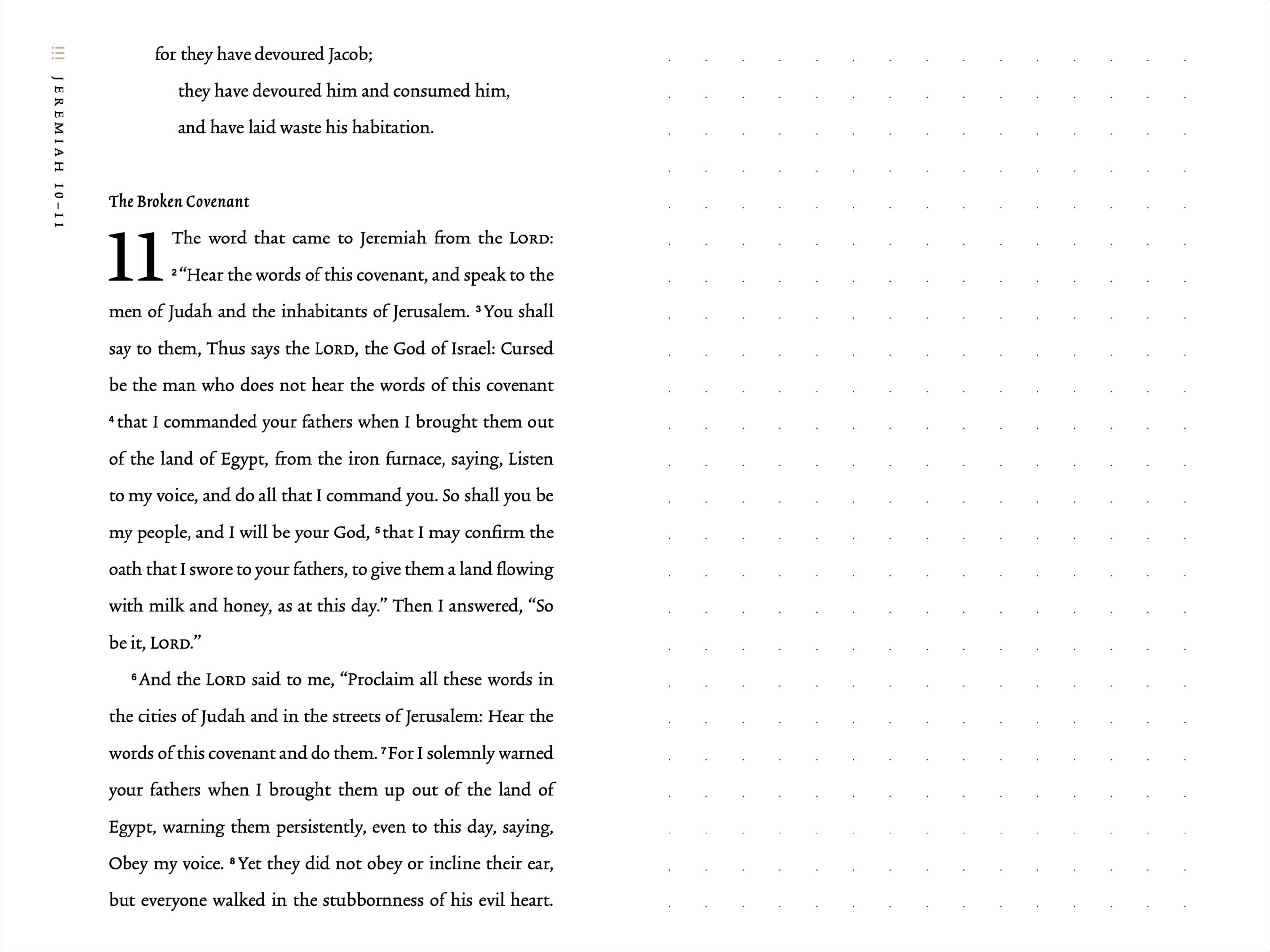| Date | Version | Reading Plan |
|---|---|---|
| @July 2, 2023 | ESV (2016) | ESV Prophets Plan 2023 |
Pericopes
- Idols and the living God
Notes
The chapter opens with a call for God’s people to not learn the idolatrous practices of the other nations. Their customs are “vanity” and their fashioned idols have no power, either to do good or evil.
Jer. 10:6-7 are a small doxology, describing the majesty and incomparability of the Lord. This is contrasted in this section against the uselessness and impotence of idols. The LORD is the only one truly worthy of worship as He has life, breath and power where idols have none.
Jer. 10:11 is a call to say to the people that the gods “who did not make the heavens and the earth shall perish from the earth”. Interestingly, this is the only verse in the book of Jeremiah that is written in Aramaic, a language similar to Hebrew. These idol merchants probably could understand Aramaic well since their business dealings required that they know this language.
Jer. 10:12-13 describe three of God’s creative attributes as 1) power, 2) wisdom and 3) understanding. There is great power in His voice and when He speaks, “there is a tumult of waters in the heavens” (Jer. 10:13).
God’s wisdom and knowledge is contrasted with man in Jer. 10:14, which reports him as “stupid and without knowledge”. Man makes images that are entirely void of life, they are “false, and there is no breath in them”. The motive of crafting such idols comes from “a work of delusion” (Jer. 10:15) that they will have any kind of power. “Not like these” is the true God who is the “one who formed all things” (Jer. 10:16).
Jer. 10:17 is a command of the LORD to gather both people and baggage as they are about to be sent into exile. God will bring distress on the people and intends the coming judgment to be visceral, “that they may feel it” (Jer. 10:18).
Jer. 10:19 is a lamentation by Jeremiah on behalf of Jerusalem and acknowledgement that they are deserving of affliction. It is a time of great chaos and Jeremiah speaks of his tent being destroyed, that his “cords are broken”, “children have gone from me”, “there is no one to spread my tent again” (Jer. 10:20) It also characterizes the shepherds as being “stupid” and that “all their flock is scattered.” (Jer. 10:20-21).
Jer. 10:23 is a profound statement of humility within Jeremiah’s prayer on Judah’s behalf. He speaks that “the way of man is not in himself, that it is not in man who walks to direct his steps.” It is an admission that God alone is capable of directing their steps.
The final verse of the chapter (Jer. 10:25) is a request for God’s wrath to be poured out on the nations who do not call on His name. This request is granted in Jer. 30:16, but only after Judah had been devoured due to her refusal to repent.
Application
There are several themes of the power of God, worthlessness of idols and “deluded” nature of man to create them contained in this chapter. However, the verse that seemed especially compelling was Jeremiah’s profession of man’s lack of internal direction in Jer. 10:23.
Native to our sin is the belief that we know what is best and can dictate our own path. It is an illusion we continue to propagate because it is rooted at the foundation of our flesh: the desire to be our own god. It is the basis for the “you do you” narrative and the expressive individualism we have come to know all to well.
However, much Like Jeremiah here, we are called as Christians to a humble surrender to God’s direction. The Bible is brimming with the destructive consequences of self-sufficiency and worldly dependency. There is but One capable of leading us to the destination of ultimate blessing and to life eternal.
Scripture Journal Notes
Commentaries & Resources
- ESV Study Bible. (Wheaton, IL: Crossway, 2008)
- Faithlife Study Bible (Lexham Press, 2016)
- Believer’s Bible Commentary (Thomas Nelson, 2016)
- CSB Study Bible Notes (Holman Bible Publishers, 2017)
- Matthew Henry’s Commentary on the Whole Bible (Guardian Press, 1976)
- The Bible: A Reader’s Guide (Sterling Publishing, 2011)
- The Infographic Bible (Zondervan, 2018)
- ESV Digital Scripture Journal (Crossway, 2019)
